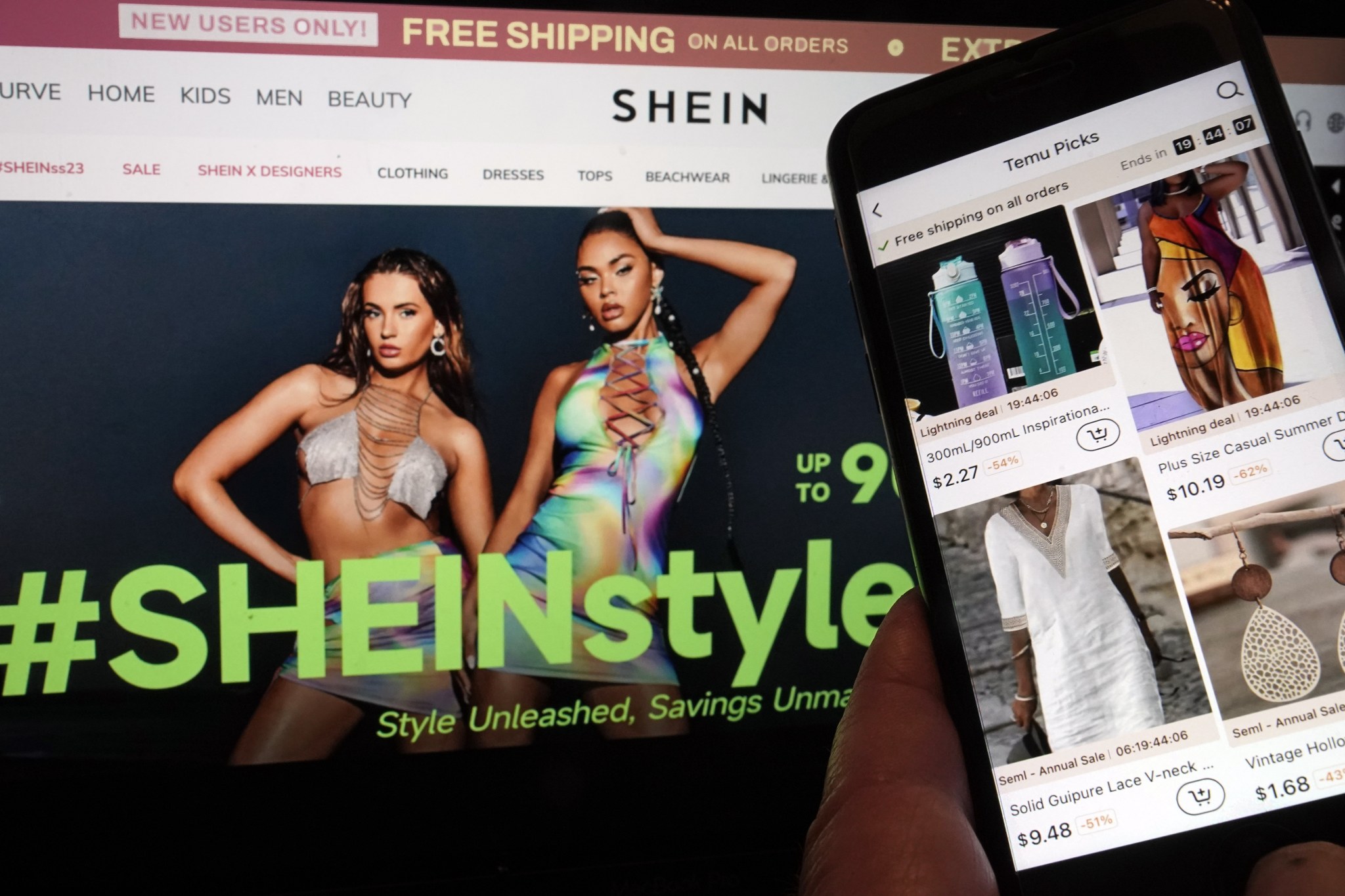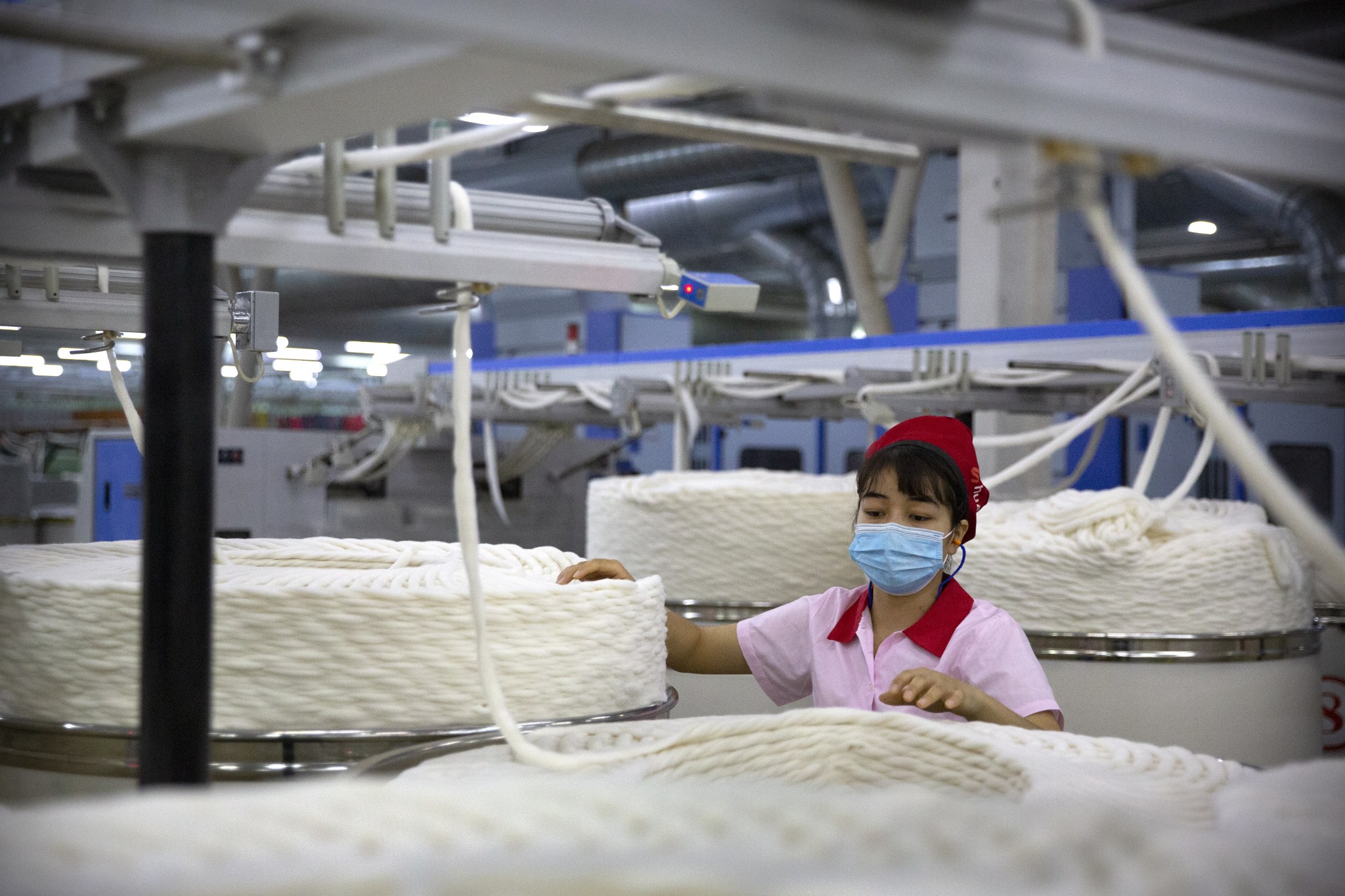How Shein and Temu get around US labor laws that ban products made with forced labor

By
In short: Fast fashion giants Shein and Temu have become increasingly popular in the U.S. for their cheap clothes and other goods. Influencers on social media post “hauls” of huge purchases from Temu or Shein. But a June congressional report revealed the two companies are taking advantage of a U.S. shipping provision that allows them to avoid paying tariffs on orders and to “circumvent” a U.S. law that aims to protect Uyghurs in China from being forced to produce cotton products.
What are Temu and Shein?
Shein and Temu both sell products for incredibly low prices – Shein focuses on fashion while Temu sells everything from water bottles to skin care. Both websites have been gaining popularity. As of October 2023, Temu is the top free app in Apple’s App Store and Shein is the second-most downloaded shopping app in the U.S.
A report from the House Select Committee on the Chinese Communist Party estimated that Temu and Shein accounted for more than 30% of all packages (valued under $800) that came into the U.S. in 2022.
Who owns Temu and Shein?
Temu is the U.S. subsidiary of the Chinese e-commerce site Pinduoduo; Temu is owned by a company of the same name. Shein was founded by Chinese billionaire Chris Xu and is now operated by Roadget Business Pte., according to Reuters.
While the two companies are similar in terms of their low prices and social media marketing campaigns, they have different business models. Temu, like Amazon, is the middleman between factories and consumers. Shein, on the other hand, buys clothes from factories to sell as Shein designs (think of a retailer like Forever 21 or Fashion Nova).
An appeal of both websites is the sheer number of products. Shein puts up to 10,000 new items on its site every day and Temu has over 200 categories of products on its site.
While the fashion industry produces clothes for four seasons per year, “fast fashion has 52 seasons a year,” Iranian American writer and organizer Hoda Katebi told Blue Marble.
“Everything you can think of is now a season and that creates this mass creation of trends. For people to want to buy new things, you have to make them trendy.”

How are their prices so low?
Shein and Temu keep their prices low through a U.S. shipping provision called the “de minimis exception,” which waives duty fees for any packages with a retail value of less than $800. Shein and Temu packages rarely reach the de minimis maximum – the average Shein shopper spends $100 per month and the average Temu order size is $25.
According to the June congressional report, Shein and Temu paid no duty fees on imports to the U.S. in 2022. In comparison, H&M paid $205 million.
Another way companies like Shein and Temu keep their prices low is by using garment workers, typically in Southeast Asia, who work long hours for low pay and typically without an employment contract.
The compressed trend cycles of fast fashion lends itself to exploiting workers, Katebi said.
“The sheer volume of clothes that fast fashion requires to meet their 52-season-a-year calendar and the quotas that are placed on garment workers to create these clothes are actually humanly impossible,” said Katebi, who has spoken with garment workers in Indonesia, India, and Cambodia.
Garment workers often end up working 14- to 16-hour days, seven days a week.
“During peak season, they may work until 2 or 3 am to meet the fashion brand's deadline,” according to Berlin-based nonprofit Sustain Your Style. “Their basic wages are so low that they cannot refuse overtime - aside from the fact that many would be fired if they refused to work overtime. In some cases, overtime is not even paid at all.”
The Overview newsletter
The news you need to navigate our world, delivered to your inbox every weekday afternoon.
Why are the companies under investigation by Congress?
Both Shein and Temu have been accused by a House committee of using forced labor from the autonomous region of Xinjiang in China. According to the U.S. State Department, 12 million Uyghurs, Turkic-speaking Muslims, live in Xinjiang and are native to the region.

The Chinese government's treatment of Uyghurs
According to the Council on Foreign Relations (CFR), the Chinese government has allegedly imprisoned over 1 million Muslims, most of them Uyghurs, in “reeducation camps” since 2017. The CFR also notes that Uyghurs “have been subjected to intense surveillance, forced labor, and involuntary sterilizations, among other rights abuses.”
But leaked documents reveal that Muslims are sent to these camps for religious observances like “wearing a veil” or growing “a long beard.”
In 2021, the U.S. deemed the actions of the Chinese government a “genocide,” and the United Nations has said there are “serious human rights violations.”
An estimated 100,000 Uyghurs and other “ethnic minority ex-detainees in China may be working in conditions of forced labor following detention in re-education camps.” This includes picking cotton to make clothes – 16% of cotton clothes in the U.S. had cotton from Xinjiang, according to a survey conducted in 2021.
In December 2021, President Joe Biden signed the Uyghur Forced Labor Prevention Act (UFLPA), banning goods made in Xinjiang. The law states that any product manufactured in Xinjiang should be assumed to have been made using forced labor. It also provided companies that ship products into the U.S. with guidelines on how to ensure that their products aren’t made with forced labor.
But companies that take advantage of the de minimis provision use it to “circumvent the UFLPA,” because without paying duty fees there is no “formal entry documentation – a major impediment to collection of data necessary to enforce import bans,” Anasuya Syam told a joint House and Senate hearing. Syam is the human rights and trade policy director at the Human Trafficking Legal Center.
A Bloomberg investigation revealed that Shein was using Xinjiang cotton in its clothes, and items on Temu’s website have included “Xinjiang Cotton” in the description, according to the congressional report.
“There is no way to make fast fashion ethical,” Katebi said. “There's no way to make fast fashion sustainable. We can create more laws around labor and regulation, but if those laws actually change the output of clothing, there is no way that those laws are actually going to be implemented within fast fashion. They can't because of the requirements set based on the needs of the industry.”






